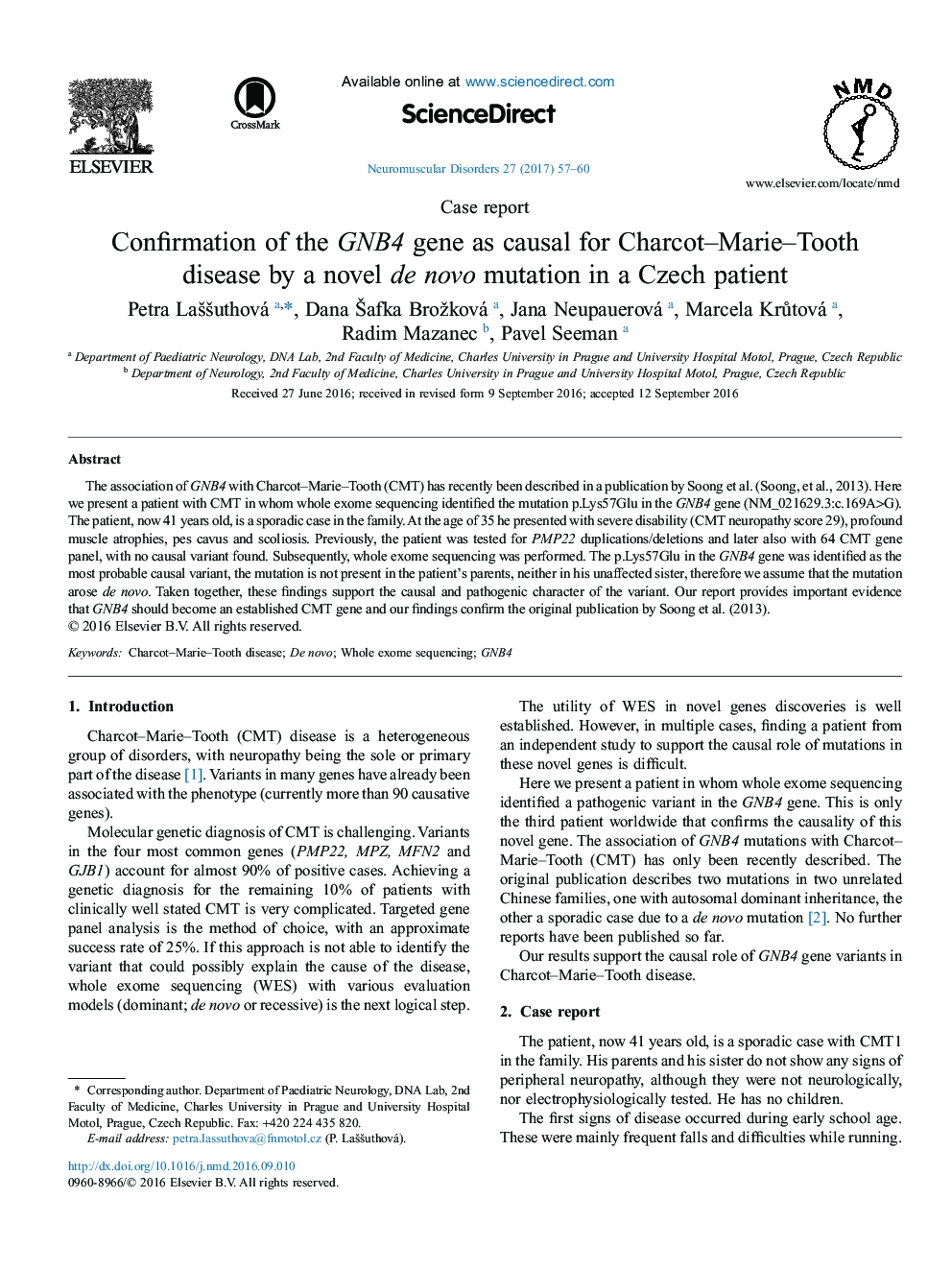| Article ID | Journal | Published Year | Pages | File Type |
|---|---|---|---|---|
| 5632409 | Neuromuscular Disorders | 2017 | 4 Pages |
â¢This is the second paper describing GNB4 mutations as a cause of CMT.â¢De novo variant in the GNB4 gene is very likely the cause of Charcot-Marie-Tooth in a Czech patient.â¢The variant p.Lys57Glu (NM_021629.3:c.169A>G) is evaluated as pathogenic according to the recommendations of ACMG.
The association of GNB4 with Charcot-Marie-Tooth (CMT) has recently been described in a publication by Soong et al. (Soong, et al., 2013). Here we present a patient with CMT in whom whole exome sequencing identified the mutation p.Lys57Glu in the GNB4 gene (NM_021629.3:c.169A>G). The patient, now 41 years old, is a sporadic case in the family. At the age of 35 he presented with severe disability (CMT neuropathy score 29), profound muscle atrophies, pes cavus and scoliosis. Previously, the patient was tested for PMP22 duplications/deletions and later also with 64 CMT gene panel, with no causal variant found. Subsequently, whole exome sequencing was performed. The p.Lys57Glu in the GNB4 gene was identified as the most probable causal variant, the mutation is not present in the patient's parents, neither in his unaffected sister, therefore we assume that the mutation arose de novo. Taken together, these findings support the causal and pathogenic character of the variant. Our report provides important evidence that GNB4 should become an established CMT gene and our findings confirm the original publication by Soong et al. (2013).
